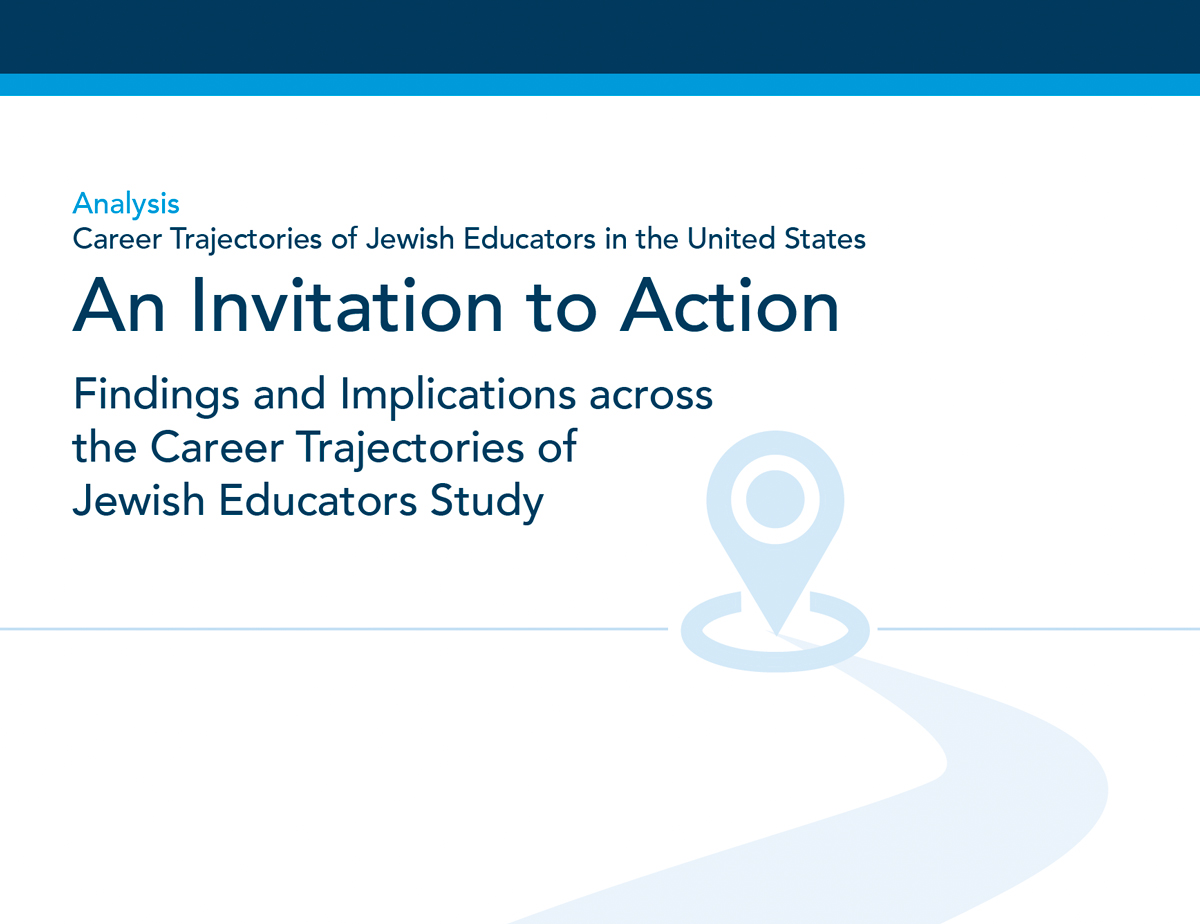CASJE’s Career Trajectories of Jewish Educators study is grounded in two assumptions. First, that the effectiveness of Jewish education is dependent upon the quality of its personnel. And second, that the ability to attract and retain such personnel has been undermined by a series of conditions and circumstances that (a) make the field unattractive to potential candidates, (b) deter those already practicing from remaining, and (c) limit opportunities for professional growth among those pursuing a career in the field.
Some of these conditions are not specific to Jewish education. They are shared, for example, by public education and other related professions; their redress calls for a broad societal reorientation to how education and care-providing work is valued and compensated. Some challenges are, however, particular to the Jewish context and, if better understood, might be addressed through well-conceived interventions fueled by significant philanthropic investment. The Career Trajectories of Jewish Educators study was conceived, then, to identify the obstacles preventing the field of Jewish education from becoming more effective in recruiting, retaining, and growing professional Jewish educators. The study is grounded in an operational definition of the Jewish educator as a paid professional who works directly with people of any age who identify as Jews, in settings—whether virtual, brick-and-mortar, or outdoor—that aim to help participants find special meaning in Jewish texts, experiences, and associations. Data were therefore gathered from five sectors within which such individuals might conceivably be found:
Sector 1: Formal Jewish Education: Day schools, supplemental and afterschool programs, and early childhood centers.
Sector 2: Informal/Experiential Settings: Day camps, residential camps, Jewish community centers, youth-serving organizations, and campus organizations.
Sector 3: Engagement, Social Justice, And Innovation: National organizations such as Honeymoon Israel, OneTable, Moishe House, Repair the World, Avodah, and Hazon.
Sector 4: Communal Institutions And Agencies: Federations, Jewish Community Relations Councils, and Jewish Vocational and Family Services.
Sector 5: Non-Organizational Networks: Predominantly made up of self-employed individuals.
The overall project yielded data from three separate, interwoven, and substantial strands of inquiry:
- Preparing for Entry, an examination of what draws individuals to become Jewish educators and what turns them away.
- On the Journey, an exploration of the career paths Jewish educators take once they choose this field and the conditions of the workplaces in which they’re employed.
- Mapping the Market, an investigation of the work of Jewish educators in the context of a labor marketplace.
In this concluding report, we weave together our learnings from these three strands and draw on the learnings produced to address the questions that have animated this work from its start. Summaries of the main findings from each strand can be found in the reports and briefs previously released. Here, we bring these findings into conversation with one another.


